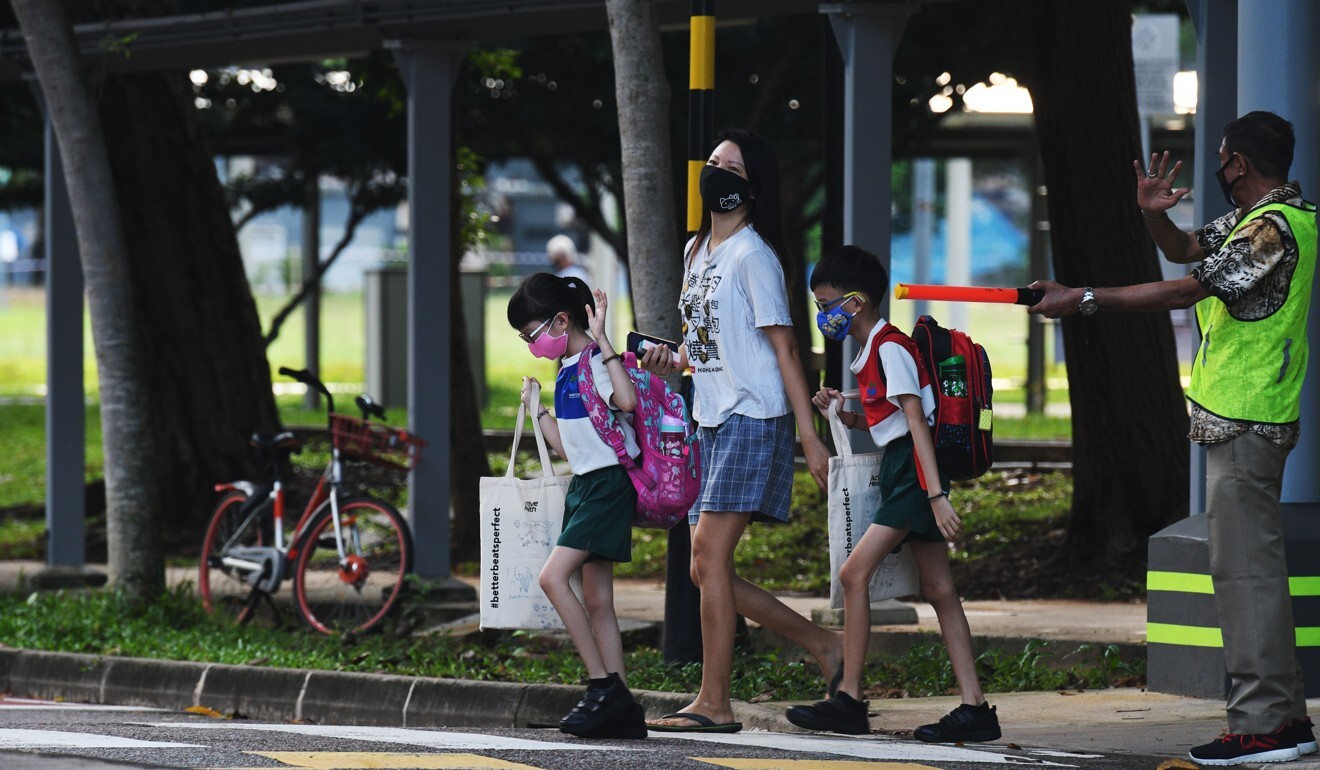
Singapore’s Shanmugam on gender equality: ‘We’ll re-tune society from a young age’
- Singapore’s Law and Home Affairs Minister K. Shanmugam recently announced a review of women’s issues and gender equality
- He gives This Week in Asia his take on the gaps in opportunities for women – and whether men are losing out too
Q. WHAT ARE THE GENDER GAPS THAT NEED TO BE ADDRESSED?
For me, I’m starting from a very basic premise. You re-tune society as a whole from a young age. The results will take a generation or more to see.

Q. WOMEN’S RIGHTS GROUPS HAVE BEEN CALLING FOR CHANGE FOR DECADES. SHOULD THE REVIEW HAVE COME EARLIER?
A. Quite a lot has been done for a start. Now, does that mean that every request that every organisation makes would be considered doable? It’s also got to be doable within the situation of Singapore. You cannot run away from the fact that it is a 762 square kilometre island and we don’t have a godfather, unlike Hong Kong. We don’t have a strong economy to align ourselves with, which will guarantee our survival, so it’s all got to be based on Singapore. That means attracting foreign investment and developing the local talent to the maximum level possible and enhancing our human resources. If 50 per cent of your population are women and 50 per cent are men, you’ve got to enhance both. So, if requests – whether for men or women – cut into that then meeting those may not be doable
Why Singapore wants to change the way we think about gender equality
There are three women MPs leading the review and they can say specifically what they would focus on. I would say one area to look at again is the representation of women on corporate boards and listed companies. Another area is how much can be done to help families, as a whole, manage care at home and the work-life balance, but without affecting our economic vibrancy and competitiveness.

Q. YOU MENTIONED VOYEURISM AS ONE ISSUE THAT SPARKED THIS REVIEW. DO VIOLENT VIDEOS, SOCIAL MEDIA AND POP CULTURE ENCOURAGE VOYEURISM?
A. We have laws that prescribe the framework for what is prohibited in terms of violence. This includes the Penal Code, which was amended in 2019 to strengthen protection for vulnerable people and victims of sexual crimes. New offences and stiffer punishments to deter potential offenders were introduced.
We also amended the Criminal Procedure Code and Evidence Act in 2018 to enhance protection for victims of sexual or child abuse, and to minimise the stress they face when they go through the criminal justice process.
Beyond the legal framework, it is challenging, or unrealistic, to attempt to control the availability and types of pop culture on social media. But that is not to say we are doing nothing. IMDA has various codes and guidelines in place. IMDA also conducts regular reviews of the codes to keep pace with technological developments and evolving social norms and values.

Q. WHAT ABOUT THE GENDER GAP IN POLITICS – IS THIS A PROBLEM AND HOW SHOULD WE FIX IT? HOW LONG WOULD IT TAKE TO ADDRESS GAPS IN PAY AND REPRESENTATION ON CORPORATE BOARDS? IF IT TAKES A GENERATION TO CHANGE MINDSETS, WHAT DO WE DO IN THE MEANTIME?
A. Through collective efforts, the position of women in Singapore has improved significantly.
If you look at the United Nations Human Development Report 2019, Singapore ranked 11th out of 162 countries for gender equality. If you look at the Global Innovation Index 2020, Singapore ranked first for the proportion of women employed with advanced degrees.
If you look at employment, we had 73.3 per cent female employment in 2019 within the prime working ages of 25 to 64. Women also held 16.2 per cent of board seats in Singapore’s top 100-listed companies. The Credit Suisse Gender 3000 Report ranked Singapore in first position (tied with Italy) for the highest proportion of companies with women CEOs.
Unsung heroes: 5 Asian women transcending gender roles
The proportion of women in our Parliament: there are 28 women out of 95 seats, almost 30 per cent. This is higher than the Inter-Parliamentary Union’s world average of 24.5 per cent.
But more needs to be done. This is a challenging area.
The gender gap is there, and can only be addressed if real choices are given to women in terms of their work-life balance.
[In terms of] the gender gap and gender pay gap, I am sure the panel leading the review will come up with more ideas on how to further address these issues.

01:07
Gender stereotyping in advertising in Hong Kong
Q. HAVE YOU WITNESSED GENDER INEQUALITY FIRST-HAND?
A. My anecdotes are the reverse, actually. Many of my professional situations involve being surrounded by women who are all very high performing and successful. In the law firm I was with before joining the government, the executive committee had five women. I was one of two men. More than half the firm’s partners were women.
I have done many interviews with new associates. Going by interview performance, women did better. So we had to practise positive discrimination for the boys. At least in those days, the boys would turn up in jeans and sandals and you would get monosyllabic answers to all questions, so you wouldn’t know what the fellow was thinking. Whereas the women would come beautifully turned out, they would have done their research, they were fully prepared, they would give you proper thought-through answers. Just based on interviews, the men would have been wiped out.
Within the context of the legal fraternity, or at least in my law firm and many other senior law firms, women did extremely well. It’s partly a function of Singapore, the quality opportunities for education. And once educated, also the fact that house help was more easily available here for middle class women and our lawyers. For people who want to become professionals, it is easier to get house help. I think that helps them significantly in doing well in their careers.
How women in the workforce can fuel post-Covid growth in Asia
Then, as a lawyer, I had to deal a lot with accountancies, banks, financial institutions and in a lot of these companies women held many of the senior positions. So my own experience has been the reverse; of high functioning, well performing, highly successful, very bright women.
However, if you look at the statistics there are a few issues. One, the number of women on corporate boards is below the number of men. Second, in the constituency and in households, even for professional women, even the lawyers in my firm, and everyone else, educated or not, women take on a much higher load of looking after the home. That’s my own experience in the sense that the women that I know, do that across all strata of society.
We didn’t have much of a gender pay gap in my law firm. But I know that the gender pay gap is there for women in general and has been there until more recently.

05:45
Fighting ‘period poverty’ and other forms of gender discrimination in developing countries
Q. SINCE WE’RE TALKING ABOUT GENDER EQUALITY, ARE THERE CONCERNS FOR MEN TOO? FOR EXAMPLE, MIGHT THEY BE LESS WILLING TO REPORT SEXUAL HARASSMENT OR ASSAULT?
A. Men are not equal? That comes as a surprise. It doesn’t immediately strike one as an area where equality needs to be weighted in favour of men right now.
Men get raped too, boys have been assaulted by female teachers, and we take a serious view of that. Men get harassed outside too when they are junior and the woman is senior. But proportionately, it is a far smaller number. I think maybe that’s partly biological makeup, and partly it’s the way societies have structured themselves over a long period of time.
Those are things that have been changing over time and I think over the last few years that change has been even faster. That is not to say there isn’t a problem but I think there is no parallel between the situation for women and men right now. It’s probably fair to say there are more areas where women need to be helped. That’s the best way of putting it.
The transcript has been edited for clarity

